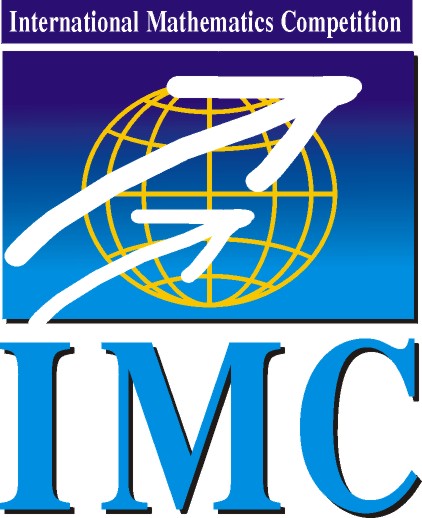
|
International Mathematics Competition
|
IMC 2026 |
| Information | Schedule | Problems & Solutions | Results | Contact |
IMC2023: Day 1, Problem 3
Problem 3. Find all polynomials \(\displaystyle P\) in two variables with real coefficients satisfying the identity
\(\displaystyle P(x,y)P(z,t)=P(xz-yt,xt+yz). \)
Giorgi Arabidze, Free University of Tbilisi, Georgia
Solution. First we find all polynomials \(\displaystyle P(x,y)\) with complex coefficients which satisfies the condition of the problem statement. The identically zero polynomial clearly satisfies the condition. Let consider other polynomials.
Let \(\displaystyle i^2=-1\) and \(\displaystyle P(x,y)=(x+iy)^n(x-iy)^mQ(x,y)\), where \(\displaystyle n\) and \(\displaystyle m\) are non-negative integers and \(\displaystyle Q(x,y)\) is a polynomial with complex coefficients such that it is not divisible neither by \(\displaystyle x+iy\) nor by \(\displaystyle x-iy\). By the problem statement we have \(\displaystyle Q(x,y)Q(z,t)=Q(xz-yt,xt+yz)\). Note that \(\displaystyle z=t=0\) gives \(\displaystyle Q(x,y)Q(0,0)=Q(0,0)\). If \(\displaystyle Q(0,0)\neq 0\), then \(\displaystyle Q(x,y)=1\) for all \(\displaystyle x\) and \(\displaystyle y\). Thus \(\displaystyle P(x,y)=(x+iy)^n(x-iy)^m\). Now consider the case when \(\displaystyle Q(0,0)=0\).
Let \(\displaystyle x=iy\) and \(\displaystyle z=-it\). We have \(\displaystyle Q(iy,y)Q(-it,t)=Q(0,0)=0\) for all \(\displaystyle y\) and \(\displaystyle t\). Since \(\displaystyle Q(x,y)\) is not divisible by \(\displaystyle x-iy\), \(\displaystyle Q(iy,y)\) is not identically zero and since \(\displaystyle Q(x,y)\) is not divisible by \(\displaystyle x+iy\), \(\displaystyle Q(-it,t)\) is not identically zero. Thus there exist \(\displaystyle y\) and \(\displaystyle t\) such that \(\displaystyle Q(iy,y)\neq 0\) and \(\displaystyle Q(-it,t)\neq 0\) which is impossible because \(\displaystyle Q(iy,y)Q(-it,t)=0\) for all \(\displaystyle y\) and \(\displaystyle t\).
Finally, \(\displaystyle P(x,y)\) polynomials with complex coefficients which satisfies the condition of the problem statement are \(\displaystyle P(x,y)=0\) and \(\displaystyle P(x,y)=(x+iy)^n(x-iy)^m\). It is clear that if \(\displaystyle n\neq m\), then \(\displaystyle P(x,y)=(x+iy)^n(x-iy)^m\) cannot be polynomial with real coefficients. So we need to require \(\displaystyle n=m\), and for this case \(\displaystyle P(x,y)=(x+iy)^n(x-iy)^n=(x^2+y^2)^n\).
© IMC